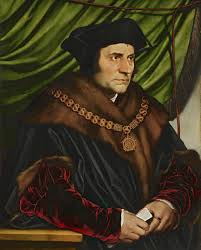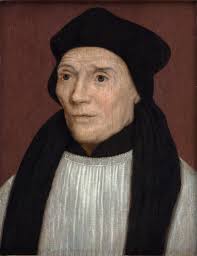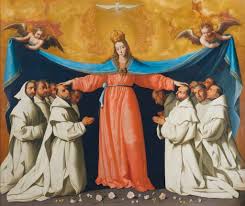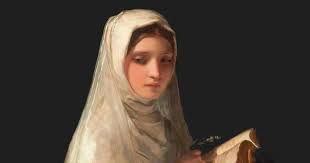biggie henry viii revision🌹🐷🍖
1/76
Earn XP
Description and Tags
if i see you in the streets henry bitch your ass is done
Name | Mastery | Learn | Test | Matching | Spaced |
|---|
No study sessions yet.
77 Terms
Anticlericalism
opposition to the Church, leading to Reformation
Protestantism
form of questioning of traditional religion, originated in Germany. About personal devotion + Bible study; inner faither not external acts
Sacraments
ceremonies with fixed actions/words which bestows God’s grace on participants
Chantry
a chapel/altar in a Church where Masses are sung for the souls of the dead
Purgatory
Grounsdwell of Opposition
dissent towards papacy + hostility + iconoclasm limited to small groups in South/South-East and fall in number of new abbeys/priories/friaries built
Support remained for the Church
clergy were generally respected, lots of churches + chapels built between 1490 + 1529 w/ significant donations from public, sacraments + rituals popular; most people accepted the Pope’s power + religious guilds
Book Anne gave to Henry
‘Obedience of Christian Man’ (+ had links with reformists such as Cranmer and Simon Fish)
Nepotism
promoting your own family
Pluralism
holding more than 1 church office
Absenteeism
being absent from Church office
Simony
selling Church offices + roles
Consubstantiation
bread + wine only REPRESENT Christ
Henry’s religious alignment
always more closely aligned w/ Catholicism + never Protestant
Traditional view on Wolsey’s fall
unpopular royal favourite, nobility took revenge on him during the divorce crisis, long-term conspiracy built up through Wolsey’s rise to greatness
Revisionist view on Wolsey’s fall
did not deliberately antagonize nobility, short-term opportunist faction led by Dukes of Suffolk + Norfolk
Boleyn Faction
her father, Sir Thomas; her uncle, Duke of Norfolk; Charles Brandon, Duke of Suffolk } Wolsey was deliberately slowing down divorce + was hostile to them?
Why did Henry lose faith in Wolsey?
Amicable Grant failure, unpopular 1525 Anglo-French alliance, divorce negotiation failure
Wolsey’s position
Legate a Latere (= easy annulment?)
1532 (Submission of…)
Submission of the Clergy
1532 Submission of the Clergy
Church agreed to surrender the right to enact new church laws without the King’s assent = Henry has authority
1532 (Act in Conditional…)
Act in Conditional Restraint of Annates
1532 Act in Conditional Restraint of Annates
banned payment of most clerical taxes to Rome…provisionally! (can be reversed + would be paid back if he got divorce - blackmail)
1533 (Act in Restraint of App…)
Act in Restraint of Appeals
1533 Act in Restraint of Appeals
prevented any appeals to any authority outside England + declared Henry as supreme ruler of his empire (DROK)
1534 (Act in Restraint of Ann…)
Act in Restraint of Annates
1534 Act in Restraint of Annates
officially stopped all payment to Rome; King to appoint all bishops - permanent
1534 (Act of Succ…)
Act of Succession
1534 Act of Succession
officially invalidated marriage to CofA + validated to Anne → Mary declared illegitimate (disinherited = no longer useful for marriage deals)
Nov 1534 (Act of Sup…)
Act of Supremacy
Nov 1534 Act of Supremacy
Henry = official head of the Church of England = even more control over matters of belief/doctrine (“Supreme Head of the English Church”)
Dec 1534 (Act for 1st…)
Act for 1st Fruit and 10ths
Dec 1534 Act for 1st Fruit and 10ths
clergy to pay some money from yearly income directly to King
Dec 1534 (Tre…)
Treason Act
Dec 1534 Treason Act
crime to criticize the changes/marriage/succession
1536 (Act of the Dis…)
Act of the Dissolution of Smaller Monasteries
1536 Act of the Dissolution of Smaller Monasteries
closure of monastic houses worth less than £200
1536 (Act of 10…)
Act of 10 Articles
1536 Act of 10 Articles
probably written by Thomas Cranmer, promoted some Protestant ideas and challenged Catholic beliefs. For example, it ignored the Catholic belief in purgatory.
1536 (Royal…)
Royal Injuctions
1536 Royal Injuctions
A set of instructions to the clergy. Included in- structions on how people should worship God and how religious services were to be conducted.
Book of Common Prayer
Introduced a set church service in all church- eg. the clergy had to follow the Prayer Book wording during services or be punished.
1537 (Bishop’s…)
Bishop’s Book
1537 Bishop’s Book
Provided a theological framework for the new Church of England, downplayed the importance of most sacraments, and promoted the idea of royal supremacy.
1537 (Matthew’s…)
Matthew’s Bible
1537 Matthew’s Bible
It combined the New Testament of William Tyndale, and as much of the Old Testament as he had been able to translate before being captured and put to death.
1539 (Act of the Diss…)
Act of the Dissolution of Larger Monasteries
1539 Act of the Dissolution of Larger Monasteries
Allowed the dissolution of the larger monasteries and religious houses.
1539 (Act of 6…)
Act of 6 Articles
1539 Act of 6 Articles
affirmed half a dozen key Catholic beliefs and their denial was made punishable by law: a heretic's death was automatically prescribed for repudiation of transubstantiation, and possible death as a felon for those who denied the divine authority of clerical celibacy, vows of chastity, etc..
1540 (Marriage…)
Marriage of Henry to Anne of Cleves
1540 (Execution…)
Execution of Thomas Cromwell
1545 (Act dissolving…)
Act dissolving chantries
Doctrine
beliefs held + taught by the Church/other group
Clerical Abuses
corruption within the church
Praemunire
treason by asserting papal authority above the King’s
Annates
a tax paid by clergy directly to the papacy
Convocation
meetings of the church to decide on religious matters
Litany
a form of prayer used in services
Regency Council
council of men established to help young Edward VI rule after Henry
Transubstantiation
Catholic belief in the literal change from bread/wine to body/blood of Jesus
Cromwell’s promise to make Henry…
…”the richest man in Christendom”
Number of monasteries/abbeys in England originally
800
Several Monastic Orders
Benedictines, Cistercians, Carthusians, Carmelites, Dominicans, Franciscans

Thomas More
appointed as Lord Chancellor in 1529 after Wolsey, despite Henry’s awareness of his opposition to divorce
became increasingly uncomfortable with divorce proceedings on moral grounds = resigned in 1532 after the Submission of the Clergy
opposition became serious in 1534 when he refused to swear the Oath of Succession, but wouldn’t give reasons → imprisoned in Tower of London + interrogated by Cromwell → eventually denied the King’s supreme authority = could now legally be convicted/charged under the Treason Act = executed 1535.

John Fisher
Bishop of Rochester + well respected for his piety + scholarship
pro-Catherine + pro-Pope, argued that denying Papal Supremacy = sinful
in contact with Chapuys (HRE Charles' V’s ambassador) + Charles himself & even urged him to use military intervention against Hnery
refused to swear the Oath of Succession in April 1534
Pope declared him a cardinal whilst captive
executed in June 1545

Carthusian monks + Franciscan friars
constituted one of the most principled + determined stands against Henry’s break w/ Rome
both were strict religious orders, devoted to Catholicism + the Pope as the supreme head of the Church
first to be suppressed from 1534
many were imprisoned, exiled and executed → John Forest = hailed as a martyr

Elizabeth Barton
1525 = vision of the Virgin Mary that she had at the age of 16 (schizophrenia?)
came under the spiritual guidance of Dr Edward Bocking (prominent + controversial Catholic monk)
“Holy Maid of Kent”
later prophecies = mostly exhortations against the King’s marriage to Anne Boleyn
railed against Henry in person when he visited Canterbury
1533 = claim that the King would cease to be on the throne in a month → executed in April 1534 w/ 5 followers
When was the Pilgrimage of Grace?
1536
Major events of 1536
dissolution of the Smaller Monasteries
Act of 10 Articles
Royal Injunctions
= Pilgrimage of Grace
3 elements of the Pilgrimage of Grace (1536)
Lincolnshire Rising, 1st → 11th Oct 1536
Yorkshire - the ‘Pilgrimage of Grace’, 8th Oct→ 8th Dec 1536
Cumberland Rising (+ Bigod Revolt) 16th Jan → 10th Feb 1537
Number of revels in The Pilgrimage of Grace
40,000 = outnumbered the King’s forces 5:1
Lincolnshire Rising (October 1536)
begin in Louth + spread across the county
in reaction to dissolving of their smaller monasteries, collection of the subsidy tax, inspection of their clergy and enforcement of religious changes by Government commissioners present
incited by rumours that the commissioners were going to seize church valuables - not just unhappy about the dissolution!